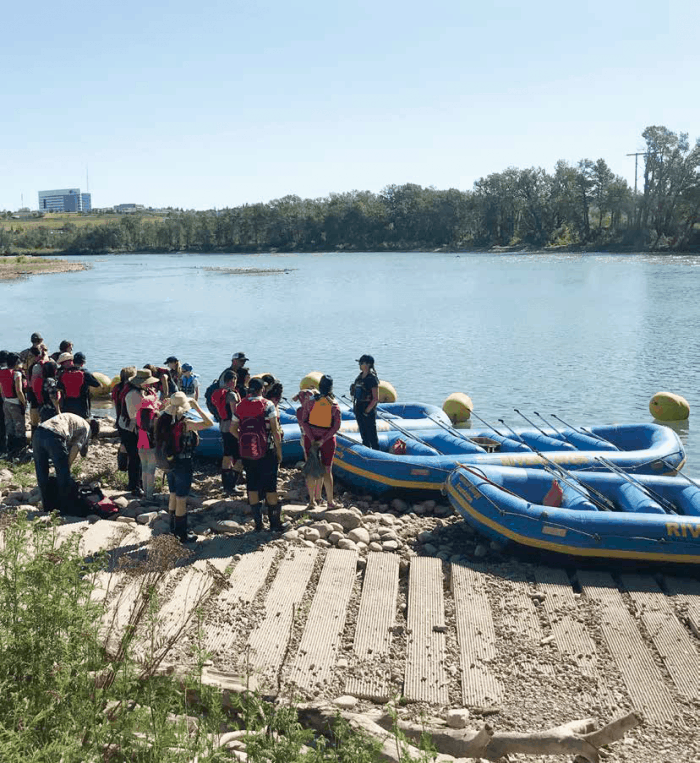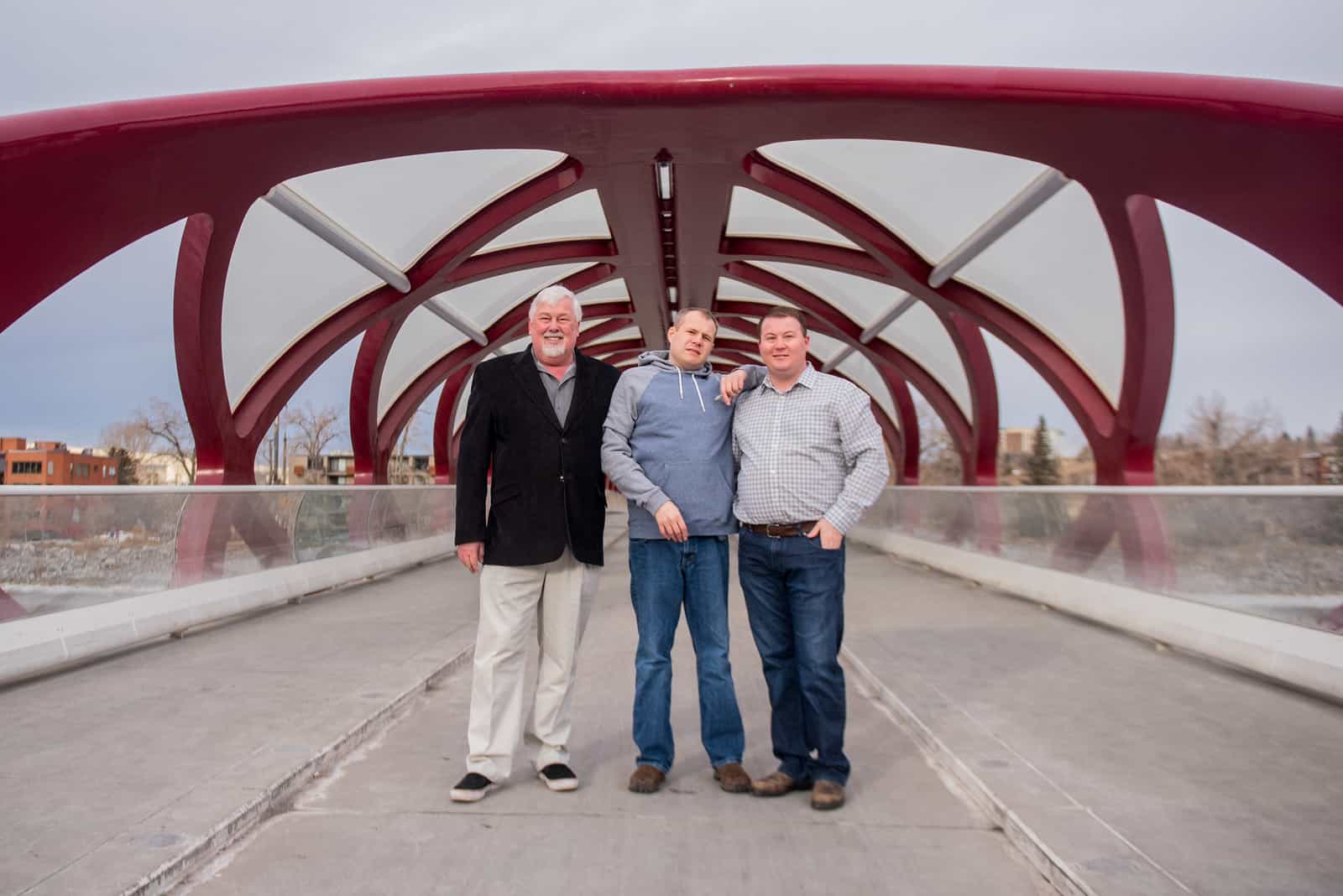 Meaningful connections between young people and the natural world are likely to pay long-term dividends in the health of our environment, and in our cultural understanding of the importance of waterways.
Meaningful connections between young people and the natural world are likely to pay long-term dividends in the health of our environment, and in our cultural understanding of the importance of waterways.
That’s why Calgary Foundation supports the River Ambassadors program.
Navigating the Bow River on a large inflatable raft filled with adults and children, guide Reed Froklage points a finger and tracks the flight of a bald eagle winging to its nest near the Inglewood Golf and Curling Club in Calgary. All eyes turn upward.
During the two-hour tour, Froklage explains how the ecosystem of wildlife along the Bow, which runs through Calgary, is linked closely to the waterway’s health. It’s one of any discoveries for participants during the 10-km River Ambassador Eco-Float trip. The free, interpretive summer tours are operated by the award-winning educational RiverWatch Institute of Alberta, which raises public awareness about the province’s river environments.
“Being in a river city, we see that the public and students need opportunities to learn about their river,” says Froklage, corporate and community programs coordinator in Calgary for RiverWatch. “To really care about it, they need to experience it, and along the way they get to learn about environmental sustainability.”
Focusing on natural history, water quality, flood recovery, responsible river behaviour, environmental health and stewardship, the public awareness program engaged thousands of park and river users from June through August. Aside from the Eco-Float tours, RiverWatch staffers were stationed daily at various parks throughout the city to discuss stormwater management, wildlife interactions, river safety and other topics of concern.
The tours showed passengers the interconnectedness of water systems in Calgary and the links between personal actions and river health.
“Ensuring people know that they’re connected directly to their river should help them make better choices about things like littering, washing their cars or pouring unknown substances in the street,” Froklage says.
The need for the River Ambassadors program was identified in the Calgary River Access Strategy. Froklage says the program, supported by several partners including the Calgary Foundation, has been very popular and he would like to secure funding to continue in 2019. Next steps would see River Ambassadors engage local businesses on how to promote responsible river behaviours in their management of stormwater.
RiverWatch also operates a very successful science-based student program with hands-on activities that focus on water quality. The student program begins after Labour Day and runs until the end of October. Froklage estimates some 6,000 Calgary students will participate in the program in 2018.
The students do more than watch and listen. Each raft of up to 18 science students from grades 8 to 12 has a portable chemistry lab onboard for testing water health. They collect information on phosphates, nitrates, temperature and more during hands-on activities that require them to engage directly with the river.
“By testing the river water, the students get an idea what’s in it,” Froklage says. “They see how everything is connected in the environment and how it relates to environmental sustainability in Calgary.”
The environmental field study based in Calgary and Edmonton has allowed nearly 125,000 Alberta students to discover the rivers closest to them since the program began in the mid-1990s.
Story by Mike Fisher



